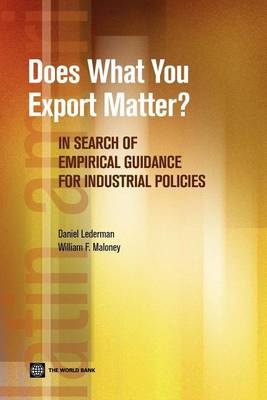Agriculture and Rural Development
1 total work
Does what economies export matter for development? If so, can industrial policies improve on the export basket generated by the market? This book approaches these questions from a variety of conceptual and policy viewpoints. Reviewing the theoretical arguments in favor of industrial policies, the authors first ask whether existing indicators allow policy makers to identify growth-promoting sectors with confidence. To this end, they assess, and ultimately cast doubt upon, the reliability of many popular indicators advocated by proponents of industrial policy. Second, and central to their critique, the authors document extraordinary differences in the performance of countries exporting seemingly identical products, be they natural resources or 'high-tech' goods. Further, they argue that globalization has so fragmented the production process that even talking about exported goods as opposed to tasks may be misleading. Reviewing evidence from history and from around the world, the authors conclude that policy makers should focus less on what is produced, and more on how it is produced. They analyze alternative approaches to picking winners but conclude by favoring 'horizontal-ish' policies--for instance, those that build human capital or foment innovation in existing and future products--that only incidentally favor some sectors over others.
